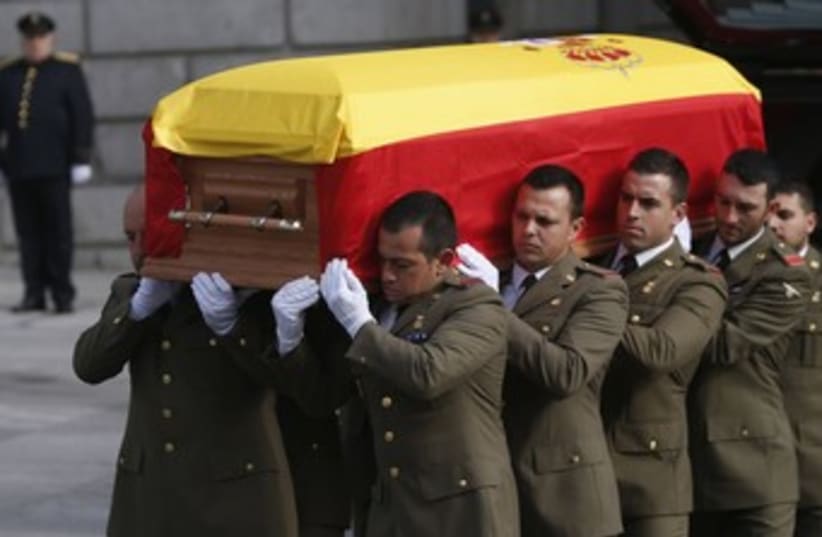The federation released a statement Sunday expressing its “deep sadness, and referring to him as “one of the basic pillars of Spanish democracy.” Suarez, who was chairman of RTVE (Spanish radio and television until 1973) and then a minor minister in Franco’s government, was first appointed to the position by the king in 1976, and was charged with working to bring all the political factions closer. In 1977, he was victorious in the first democratic elections to be held since before the Spanish Civil War (1936-1939). Suarez legalized the Spanish Communist Party in 1977, and was openly accused of being a “cambio chaquetas,” (turncoat) by many on the Right. The federation, which represents all the Jews of Spain, stated that, “We value and recognize the political figure of Adolfo Suarez for his enormous contribution to the transition from dictatorship to democracy and for his work in enabling the Spanish people to have a democratic constitution [passed in 1978] that consecrates the building blocks of coexistence and human rights, such as are freedom, equality and justice.” It also mentioned that the Law of Religious Freedom was passed during Suarez’s tenure.
The former president was an Alzheimer’s sufferer. He died on Sunday afternoon at Madrid’s Centro Clinic hospital from a respiratory infection. He was held in state for 24 hours and then buried in Avila Cathedral. Three days of mourning were declared by President Mariano Rajoy.
In a televised speech, King Juan Carlos paid tribute to Suarez, whom he called a friend. Suarez, said the king, was “guided at every turn by his loyalty to the crown and all that it represents: the defense of democracy, the rule of law, unity and the diversity of Spain.”
